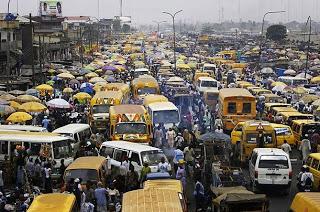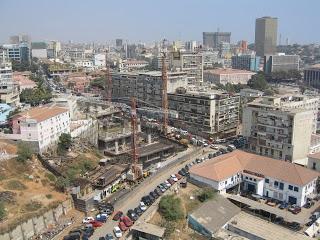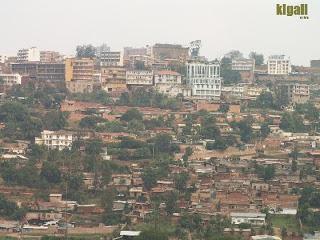Globalization, Neo-Colonization and Urbanization in Africa
According to the United Nations, 50% of the world’s population – i.e. 3.5 billion people – are living in urban areas. In the last decade, the African continent – the least urbanized continent – recorded accelerated urban population growth rate, almost double the world average in the same period. This was somewhat different from other regions (e.g. Latin America) which were urbanizing much slowly. It is in this context of super-scale urbanization buoyed by technological innovation and structural inequality that globalization processes unfold. Globalization and colonialism are not dissimilar. As Milton Santos warned us, colonialism was the first instance of globalization, characterized by territorial occupation. The second instance of globalization (neo-colonialism), from the late 20th century onwards, was marked by territorial fragmentation.
It is in the city that the majority of the world’s population lives and urbanization is a growing trend.
In our analysis, it is important to underline the consolidation of the global economic matrix following the precepts of the Washington Consensus. Geopolitically, new forms of social and political domination with profound regional impacts took root across the world. Around that time, in several western countries, governments that came to power were those that promoted rigorous de-regulation policies that minimized state involvement, in favour of a bigger role of the private market in running the economy. Among the principle measures defended by those leaders were the privatization of state enterprises, and reduced dependence on the State for social security benefits, especially pensions.
 Lagos
Lagos
In Cape Verde, the “neo-colonial wave” washed ashore at the same time as the “political opening-up” of the 1990s. It was a decade of privatization and closure of state companies to make way for an enlarged private sector that permeates the entire economy. The history of the creation the Cape Verdean State was rather different from that of the Global North, though. Only 15 years into Independence, at a time when the colonially-modelled administrative structure was yet not solidified, Cape Verde sped ahead on a privatization runway that completely derailed the proper nation-building process.
Cape Verde, an island-state, is located in the middle of the Atlantic Ocean, between Brazil and Africa. The country is formed by a total of 10 islands, 9 of which are inhabited. The population totals 492,000 and is overwhelmingly young. Unemployment is a serious problem and according to the National Statistics Institute, the unemployment rate could reach 38% in the youngest age bracket. The lack of natural resources coupled with long drought cycles have compelled a great many people to emigrate. It is estimated that there are presently one million Cape Verdeans outside the country, accounting for two-thirds of the aggregate national population.
 Luanda
Luanda
As things stood, the neo-liberal wave washed ashore Cape Verdean beaches, so that, in the 1990s, the Cape Verdean State experienced decentralization similar to western countries in an outsourcing management of public services paradigm. The fact, however, is that the Cape Verdean public administration was not really so overblown to justify applying the neo-liberal measures of the North. It is crucial that we consider the vulnerabilities of a society, recently independent, already weighed down with the work of “constituting the postcolonial subject” and the fight for rights. The colonial state before this was based on privileges and violence. As Achille Mbembe, an important scholar and African intellectual, put forward in his book On The Post-Colony, “in Africa both before and after colonization, state power enhanced its value by establishing specific relations of subjection, something must be said about the relationships between subjection, the distribution of wealth and tribute, and the more general problem of the constitution of the postcolonial subject”.
The colonial model of governance never favoured any notion of “right”, in fact, for decades, all forms of social organization, even those of apolitical nature, were vetoed. That is to say, the model enforced in all colonies, including the Portuguese ones, was the opposite of debate, the antithesis of the fight for rights, except perhaps, as Mbembe has pointed out, in moments of arbitrary summon of the right to conquer, or else, the concept of right was void. The exercise of power implicates necessarily the “domestication” of the colonized, be it by violent means, or by assimilation in the Portuguese case, the legal basis of which could be found in the Indigenous Statute. Here, we remember Amílcar Cabral, hero of the independence movements of Guinea-Bissau and Cape Verde, who denounced the Indigenous Statute for having officialised racism (which the Salazar regime always denied) in the Portuguese colonies at the United Nations in the 1960s.
In other words, the main feature of colonial rule was to give orders and make sure that these were attended to; only the rulers had rights: the right to command, coerce, oblige, authorize, punish and be obeyed. The signing of an independence treaty was not enough to deconstruct the colonial regime that had impregnated humans and their daily acts. It takes multi-generational efforts to constitute a post-colonial subject free from the centurial chains of domination to which his or her ancestors were subject.
 Kigali
Kigali
As such, neo-colonial influences took hold in this post-colonial context, leaving a legacy of ideological constructs, or to be more precise, notions distorted and coloured by domination, for example, universal rights, fight for certain freedoms, self-governance, etc. As a result, several challenges imposed themselves in Cape Verde’s transition from being a newly decolonized, young nation-state towards its embracing the neo-liberal model: The State’s public policies were replaced by NGO activities, from health care to education (substituted by training). There are major consequences:
- Fewer and fewer public resources are allocated to these sectors;
- Education proves inadequate in preparing the people for the increasingly necessary challenge of elaborating “projects” (and managing them) in order to obtain resources;
- Project-bound “activities” are discontinued when the respective projects end, often causing dramatic interruptions in local development;
- An external agenda is imposed on the country, when it is already known that large international agencies have pre-defined funding rules and are little responsive to local demands;
- The population is obliged to engage in local “entrepreneurship”, having to hustle and be very active. This happens disregarding the recent colonial past and the domination-induced dependency.
 Khartoum
Khartoum
To put it differently, the “NGOnization” of the State signifies the substitution of public policy-making and universal benefits by a cosmos of “projects”. On top of this, in neo-liberal globalization, the public policy formulation process is yet complicated by international interests and obscure NGO operations.
Consequently, it is taking doubly long for the former colonies to achieve reconstruction, autonomy and emancipation. In particular, with regards to Cape Verde, how are we to limit State actions or to retrench public policies if these were not consolidated within the short period since Independence in the first place? How are we to re-define State intervention if the State was not even responsible for wealth redistribution to start with? How are we to promote better land access, right to residence and right to the city within a structure of privilege directly inherited from the colonial system?
An analysis of territorial occupation of African cities resulting from rapid urbanization should take into account not only the neo-liberal globalization trends but also the recent (and violent) decolonization process. In this sense, a series of rights have been neglected and excluded from African national agendas, with serious implications for the configuration of African cities.
Shouldn’t we better conceptualize territory, city and urbanity in times of neo-liberal globalization for Africa, and perhaps also for Latin America, in order to find more effective ways to cope with the urban challenges facing these continents? While functional modernism informed urban studies in the late 20th century rather poorly, the post-modernist alternative has not really enlightened us on the urban futures of poor countries either. Cape Verde, a case of insular urbanity within a globalized economy, presents yet more epistemological challenges.
Article published in Teoria e Debate, 111, 18th April, 2013.